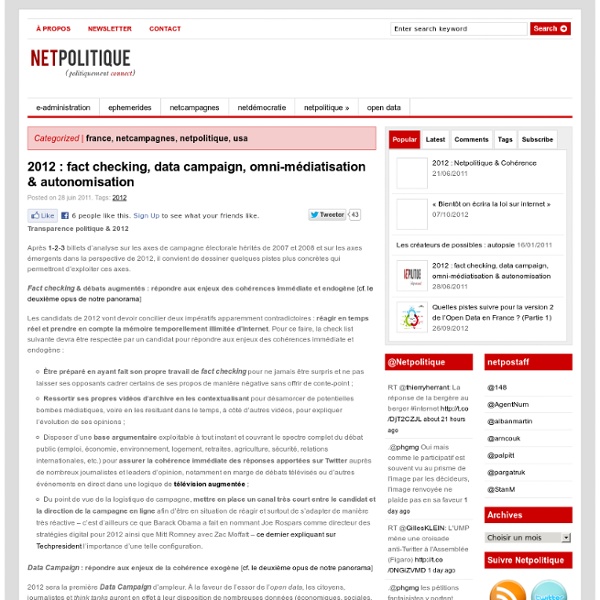



Fact checker A fact checker is the person who checks factual assertions in non-fictional text, usually intended for publication in a periodical, to determine their veracity and correctness. The job requires general knowledge and the ability to conduct quick and accurate research. The resources and time needed for fact-checking means that this work is not done at most newspapers, where reporters' timely ability to correct and verify their own data and information is chief among their qualifications. Publications issued on weekly, monthly, or infrequent bases are more likely to employ fact-checkers. Fact-checking, known as "research" at many publications, is most critical for those publishing material written by authors who are not trained reporters — such writers being more likely to make professional, ethical, or mere factual mistakes. "Any fact-checking system is built on trust. . . . History[edit] Modern innovations[edit] Prominent fact checkers[edit] Individuals[edit] Organizations and websites[edit]
Partageons mon avis IfItWereMyHome Nova Ciutat Vella — Goya, l’art de la confusió “Jo pinto barbaritats perquè els homes no siguin tan bàrbars”, diu la llegenda que explicava el mestre pintor aragonès, ara protagonista d’una exposició al Caixafòrum fins al juny A dia d’avui corren temps difícils que recorden més o menys al segle XIX. I són només els grans mestres —a vegades ni tan sols ells mateixos— els qui tenen una perspectiva clara del futur. El futur no és senzill d’entendre, i és normal doncs que la gent, en la seva quotidianitat, quedi confosa amb un món aparentment tan complicat. Francisco de Goya, segons els llibres que expliquen la història de l’art i resta d’informació empírica, va ser un avançat al seu temps, un d’aquells mestres que, a la seva manera, va saber retratar la seva època i el que possiblement estava per venir. El Caixafòrum va obrir aquest passat març , una exposició que mostra les obres del pintor aragonès fins al proper 24 de juny, de la mà del museu madrileny d’El Prado.
The Self-Made Myth: Debunking Conservatives Favorite -- And Most Dangerous -- Fiction | Visions Photo Credit: Gage Skidmore April 25, 2012 | Like this article? Join our email list: Stay up to date with the latest headlines via email. The self-made myth is one of the most cherished foundation stones of the conservative theology. If you've heard it once from your Fox-watching uncle, you've probably heard it a hundred times. He's just plain wrong. The Built-Together Realty Brian Miller and Mike Lapham have written the book that lays out the basic arguments we can use to begin to set things right. Miller, the executive director of United For a Fair Economy, and Lapham, a co-founder of UFE's Responsible Wealth project, argue that the self-made myth absolves our economic leaders from doing anything about inequality, frames fair wages as extortion from deserving producers, and turns the social safety net into a moral hazard that can only promote laziness and sloth. To their credit, Miller and Lapham don't ask us to take this point on faith.
Cryptome Freedom of Information Act Un article de Wikipédia, l'encyclopédie libre. Le Freedom of Information Act (FOIA) (en français, « Loi pour la liberté d'information ») est une loi américaine signée le 4 juillet 1966 par le président Lyndon B. Johnson, et entrée en application l'année suivante. Fondée sur le principe de la liberté d'information, elle oblige les agences fédérales à transmettre leurs documents, à quiconque en fait la demande, quelle que soit sa nationalité[1]. Contexte du vote de la loi et dispositions[modifier | modifier le code] Le FOIA a été voté dans le contexte de la guerre du Viêt Nam, l'opinion publique exigeant un accès plus aisé aux documents de l'administration américaine. Watergate et Privacy Act de 1974[modifier | modifier le code] Le Privacy Act (PA) de 1974 couvre l'accès aux documents relatifs aux individus. Ces amendements aux FOIA concernent le contrôle gouvernemental de documents à propos des citoyens. Sous Reagan[modifier | modifier le code] Annexes[modifier | modifier le code]
Freedom of information legislation Freedom of information laws (FOI laws) allow access by the general public to data held by national governments. They establish a "right-to-know" legal process by which requests may be made for government-held information, to be received freely or at minimal cost, barring standard exceptions. Also variously referred to as open records, or sunshine laws (in the United States), governments are also typically bound by a duty to publish and promote openness. In many countries there are constitutional guarantees for the right of access to information, but usually these are unused if specific support legislation does not exist. Introduction[edit] Over 90 countries around the world have implemented some form of freedom of information legislation.[1] Sweden's Freedom of the Press Act of 1766 is the oldest in the world.[2][3] Most freedom of information laws exclude the private sector from their jurisdiction. Australia[edit] There is similar legislation in all states and territories: Azerbaijan[edit]
The Venus Project